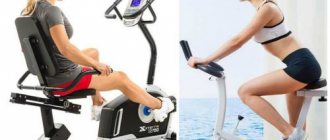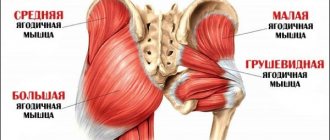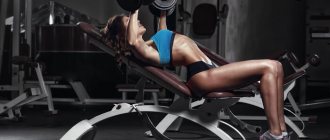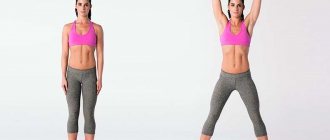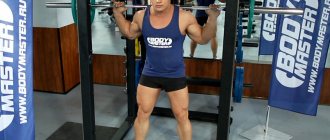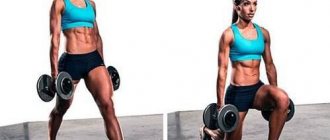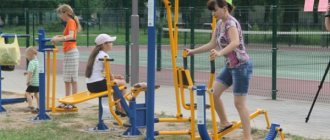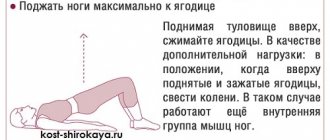Is it possible to pump up your butt while riding a bike?
Before answering this question, let’s try to figure out which muscles work and how intensely cyclists work. Let us immediately note that some muscle groups are involved in pedaling and therefore bear the main load. Others are involved in maintaining balance, maintaining a certain body position, and are also used mainly when turning or moving over rough terrain. The latter include the muscles of the arms, back and abs.
But we are more interested in those muscles that experience significant loads, which means they can increase (pump up) due to cycling. You only have to look at any professional cyclist to notice their thoroughly toned legs. Indeed, when riding a bicycle, the main work is performed by the leg muscles: rectus femoris, vastus lateralis, vastus medialis, sartorius, and gastrocnemius.
But now we are most interested in whether it is possible to pump up the buttocks while riding a bicycle. Of course, the buttocks bear a significant load, but during normal driving this load is static. But there is a way out. As soon as a cyclist begins to ride over rough terrain and, in order to maintain balance, moves into a standing position - rising above the saddle - the gluteal muscles immediately begin to experience serious dynamic load.
How to exercise to increase the volume of your limbs
Exercising on the simulator puts stress on the following muscle groups:
- thigh muscles - the main load goes to the biceps and quadriceps;
- ankle and calf muscles;
- gluteal and iliopsoas muscles;
- muscles of the anterior abdominal wall, mainly in the lower third.
The buttocks and thighs are pumped up more, and the contours of the calf are more clearly defined. Due to such a load, not the quantitative (volume), but the qualitative condition of the muscles improves. The legs become toned with sculpted muscles.
If the goal is a dramatic increase in muscle volume, you need to:
- Exercises on the simulator at a high pace for 30-40 minutes. Immediately set the average resistance to 4-5 and, without slowing down the pace, without pauses or rest, increase it to 8.
- Protein nutrition is the second component of success. On training days, the diet is made up of protein-rich foods: poultry breasts, soybeans, beans. To quickly build muscle, switch to ready-made protein nutrition, sold in sports stores.
- Regularity of training. Start with 3 hard workouts per week, gradually increasing their number. By the end of the month the schedule becomes daily.
Such loads are prohibited for diseases:
- kidney;
- joints;
- hypertension and cardiac ischemia.
Classes require good physical fitness and endurance. It is better to start training under the guidance of an instructor.
How to pump up your butt on a bicycle
It turns out that the more tortuous the trajectory of movement, the more sharp descents followed by steep climbs along the way, the longer the route, the greater the chance of pumping up your buttocks on a bicycle. It can be considered an ideal option and great luck if there is an equipped cross-country track within your reach - racing a bicycle over rough terrain. But if such an opportunity is not available, it doesn’t matter either: if you wish, you can always choose a suitable training ground. The main thing is not to get carried away too much, remember your main goal, safety precautions and not go to extremes like extreme north shore, sprint-dh or bmx-super-cross.
The load on the muscles is largely determined by the speed of movement and the terrain on which the training takes place. Bicycle position also matters: when you lean on the saddle, the front of the thigh is pumped, when pedaling while standing, the back of the thigh and gluteal muscles are pumped. Cardio loads, which are also significant, should also be taken into account. To create the right training regimen, the participation of a professional trainer is useful. The training schedule, as well as an individual plan for increasing loads, should be drawn up taking into account the general state of health and age standards.
The benefits of an exercise bike
You can simply pedal on an exercise bike, or you can do various exercises and break speed records. In any case, this device has many advantages:
- The exercise bike is universal. It can be used to both gain muscle mass and lose fat mass. It all depends on the chosen training mode.
- The exercise machine tones all the muscles of the body, legs first of all.
- Exercising on an exercise bike increases lung capacity, improves the respiratory system, and strengthens the cardiovascular system.
- Develop endurance.
- Relieves stress. By competing with yourself, breaking speed records, you can throw out negative emotions and get rid of accumulated worries.
- Working out on an exercise bike is an opportunity to combine business with pleasure. You sit in one place and don't have to look at the road, which means you can read a book or watch a movie while you exercise.
Is it possible to pump up your butt on an exercise bike?
When exercising on an exercise bike, in contrast to sitting on a bicycle, the athlete has a straight back, due to which the gluteal muscles are actively involved. When the foot pushes the pedal of the machine, the gluteal muscles work in the same way as during a one-leg squat, or more precisely, during hip extension. Rotating the pedals is similar to alternating squats with one or the other leg.
If the exercise bike is set to a high load, the gluteal muscles are intensively pumped, especially the large (musculus gluteus maximus) and middle (musculus gluteus medius). The gluteus minimus muscle (musculus gluteus minimus) is also pumped when the hip is extended on the supporting leg, but the intensity of the load on it is lower than on the gluteus medius muscle.
Closing the question of whether it is possible to pump up the buttocks on an exercise bike, let’s make one more emphasis:
- a small load at a significant speed and duration of training leads to a decrease in the layer of subcutaneous fat, improves the relief and increases the elasticity of the buttocks;
- high load at a moderate pace that is comfortable for you with a short duration of the “set” - a fragment of the workout - leads to an increase in muscle mass of the most involved muscle groups.
Andrey Vasiliev Was on 03/27/2019
June 27, 2015 17865 4 6
Exercise bike as a remedy for cellulite: is there any benefit?
An exercise bike is very often purchased specifically as a means of losing weight (see the link for the features of this exercise machine specifically in terms of weight loss). It is not surprising that many ladies are interested in what the effect of an exercise bike is in terms of getting rid of cellulite. Therefore, in this article we will figure out whether an exercise bike helps against the “orange peel”.
First of all, it should be noted that intense and correct (!) training creates an excellent basis for getting rid of unpleasant subcutaneous fat. Firstly, it burns a lot of calories. • Secondly, the muscles of the legs work, that is, exactly that part of the body that is prone to cellulite. • Thirdly, during exercise, body temperature rises. However, despite all this, it cannot be said that the exercise bike actually destroys the “crust” without problems. The fact is that cellulite is a rather “hard-to-get” reserve. You can remove belly fat very quickly - this is the most easily accessible store of reserve nutrients (which is why, by the way, it’s easy to gain belly fat, not just lose it). Therefore, for an effective fight, it is necessary not only to diligently puff on an exercise bike, not forgetting about the correct duration of the workout, target heart rate zone and load level, but also to fully increase the availability of cellulite reserves for the body. How can I do that? Here are the main ways: • training in special shorts and breeches (this not only promotes profuse sweating, but also accelerates biochemical reactions due to increased temperature); • intensive massage of problem areas (improves blood circulation); • use of special anti-cellulite creams. That, in fact, is all the main tricks.
Loads on an exercise bike: what should they be?
One of the advantages of an exercise bike is that on this sports equipment (even on relatively simple and cheap models) you can set yourself a fairly large range of loads. This allows you to use it for different purposes and achieve different effects from training. At the same time, this circumstance requires the one who trains to take a rather careful approach to choosing the level of load (resistance to pedal rotation). It is fairly obvious that people who want to achieve different goals from their activities need to set different levels of resistance. In this article, we will provide some guidelines for properly setting up the exercise bike in relation to the load on the legs. First, however, two caveats need to be made. Firstly, when we talk about the level of intensity of the workout, the difficulty of pedaling, we need to remember that these indicators are purely individual. This is obvious, but it would be wrong not to mention it. Secondly, first of all you need to focus not so much on the mechanical resistance of the pedals. The most important aspect of training is how you feel. An objective criterion for the complexity of fitness classes is heart rate. You definitely need to remember this and select different target (that is, the one you need to strive for) heart rate for different workouts. And now to the main thing. What loads are best suited for the most common training goals? Here are approximate (relative) values: during training that aims to pump up muscles, the resistance level should be high, the muscles should work with every movement; if your goal is to train the cardiovascular system, you need to set the machine to the level of resistance that is most comfortable for you. Of course, you can’t choose too light a load here, but in this case, the duration of classes and heart rate are much more important; if your goal is to lose weight, then the load level should be slightly below average. The pedals should turn quite easily: after all, when training to lose weight, you should sweat for at least half an hour (if less, fat will not be broken down). In addition, those who are losing weight usually do not need pumped up muscles, which can be the result of diligent pedaling with great resistance.
What should your heart rate be during training?
It is quite well known that when doing fitness (both on exercise machines and without them), the pulse, which is maintained during the workout, is very important. Your heart rate is closely related to how your workout will affect your body. If your heart rate is higher or lower than optimal, you may not achieve your goals, such as losing weight. That is, even if you conscientiously sweat every day, but you don’t monitor your heart rate, it’s not a fact that you will be able to lose weight. This is not an exaggeration. Pulse is really very important. Here we present only the most important guidelines in this regard. For details, you can look in other articles on the site (section “training”), and, if possible, consult with an experienced trainer or doctor. So, what heart rate values should you strive for when doing fitness? First we introduce two concepts. The first is your maximum heart rate. It is calculated (for adult non-professionals) as follows: 220 - age in years. That is, for a 20-year-old: 220 - 20 = 200. The second is the effective (target) heart rate zone. This is the percentage of your maximum heart rate that best suits your specific exercise goals. See below for the scale of these zones for different purposes. That is, if you are 20 years old and you need to keep your heart rate to 60 - 70%, then the heart rate you should strive for is 120 - 140 beats per minute. It's simple! And now the scale: • 55-65% - therapeutic zone. Classes should be held there for initial training of the heart, blood vessels, and lungs. This is also a warm-up and cool-down area. • 65-75% – “low zone”: best for burning fat. • 70-80% - “average” zone. First of all, endurance is trained, less fat is burned. There are other (higher) zones, but they are intended mainly for professional athletes, as they are associated with high loads.
Exercise bike and buttocks: is it possible to pump up your buttocks by pedaling?
Many people who are thinking about buying an exercise bike are concerned about how exercise on an exercise bike will affect their figure. It is quite obvious that an exercise bike helps you lose weight, as it intensively burns calories. However, how does it specifically affect the muscles of the buttocks? The answer to this question is both simple and complex. Firstly, the gluteal muscles are indeed one of the muscles that the exercise bike develops. However, its effect can be very different - depending on the intensity of the workout, its duration, heart rate, and other features of your fitness classes. The fact is that different workouts can lead to different consequences. Muscles can change in different ways under the influence of physical activity. That is, this problem has two sides, roughly speaking, two news for those who want to train: Good news: the result of training (both in relation to the shape, volume of the buttocks, and in relation to other parts of the body) depends mainly on you, and not on simulator. The bad news: to get exactly the results you want, you need to know how to train. To cope with this bad news, we recommend checking out the articles in the training section. Here we will give just a couple of examples of the possible impact of training on the gluteal muscles: • exercises with a heavy load, powerful resistance of the pedals - contribute precisely to pumping and increasing volume (although quite long and hard training is needed to achieve the effect). • if you set a small load and train long enough, the muscles will become more elastic and elastic, but the main effect will be in burning fat. • if you set the average load and average (for you personally!) training time, then the effect of losing weight will be weakened, and the effect of “increasing the elasticity of the butt” will be increased. Let us also add that the best effect on the gluteal muscles is not a traditional exercise bike (vertical) but a horizontal one - that is, one on which exercises are performed in a “reclining” position. In particular, it could be a mini exercise bike.
How to properly exercise on an exercise bike
This article is one of the most important materials in the training section in a practical sense. Here are the main rules that help you train effectively on an exercise bike. Please note that these rules are universal and relate primarily to safety, avoiding gross mistakes and injuries. The site also has articles dedicated to specific training goals, containing recommendations in a specific “narrow” area. Example: how to lose weight on an exercise bike? So, we list the basic rules, the observance of which will bring you very much closer to correct, effective and safe exercise. 1. Body position during training. First of all, you need to keep your back straight. Unlike a bicycle, which, although it keeps your back bent, nevertheless does not harm your posture, its standing brother loses in this regard. When riding a bicycle, your back is tense and working, so a bent position is natural. When sitting on the simulator, the back does not work, so the landing should differ little from simply sitting on a chair. It is not necessary to hold onto the handles, but at high speeds and full “involvement” in training, it can be useful. Be sure to adjust the seat height so that your knees do not stick out higher than the steering wheel and you do not have to reach for the pedals, barely reaching them. 2. Equipment. It is clear that no special clothing is required here - it just needs to be comfortable, not restrict movement and eliminate the risk of loose ends getting into the mechanism (although all modern models have good protection against such getting in). No matter how great the temptation is to exercise barefoot, it is still better to use sneakers or comfortable sneakers. 3. General rules of fitness. Actually, this is all that they tried to hammer into us in physical education lessons. These rules must also be followed. First of all, it is breathing control. You definitely need to breathe through your nose. Be sure to start your session with a warm-up, warming up your joints and preparing them for work. Do some gymnastic exercises, squat, rotate your neck, wave your arms. Under no circumstances should you stop training abruptly. After classes there should be a cool-down to help the heart calm down and switch from an increased frequency of contractions to a normal one. 4. Match the training goal. The duration of your workouts, level of intensity, and heart rate should match your goals. So, when training for weight loss, you need to exercise for a long time (from 40 minutes), setting a load level that is not too high and maintaining your heart rate at about 75% of the maximum. Read more about weight loss exercises. For other purposes, accordingly, other rules and parameters are characteristic. 5. Monitoring performance. If you really set any goals regarding your health, fitness, figure, you need to keep a log of observations of yourself, your condition and the effectiveness of exercises. In such a journal it is worth recording the training time, calories burned, your own feelings, and the distance traveled. This will allow you to evaluate your progress, as well as gradually select the most suitable loading methods (uniform or interval, 3 times a week or 4, and so on).
The effect of an exercise bike: features, benefits and harm
So, the main facts and features. 1. An exercise bike trains the leg muscles well, improving joint mobility, ligament strength and their resistance to injury. 2. Training on this simulator contributes to the development of the cardiovascular and respiratory systems, which is an excellent prevention of many diseases (primarily heart diseases), and also increases the overall fitness of the body and its “vital capacity”. 3. During exercise, intense burning of calories occurs, especially if the student adheres to the rules and his pulse enters the target zone. 4. The main area of the body in relation to body correction when exercising on an exercise bike is the hips. Therefore, during training, the proportions of both the abdomen and hips improve - since the abdomen generally easily responds to any aerobic exercise (the hips are worse, but the exercise bike is “targeted” at them! Therefore, both areas of the body are affected). 5. Exercises can be harmful if you practice them while having diseases from the list of contraindications, or if you expose yourself to overload. 6. Unlike the treadmill - the main competitor - the hero of our site is more gentle on the knee and ankle joints, without exposing them to shock loads. 7. During classes, it is reasonable to pay great attention to psychological relief - the sensations of speed, fast driving, racing, which helps relieve stress more effectively. These were the main aspects of the impact. Look for more detailed information in other articles; the site map will help you navigate. How long to exercise on an exercise bike The question of how long you should exercise on an exercise bike is very important, since it forms the basis not only of the actual exercises, but also of the daily planning of your exercises in general. So how much time do you need to spend on an exercise bike to achieve good results? Firstly, it should be noted that the question is not posed entirely correctly. The fact is that, with some reservations (more on them below), you need to focus primarily not on the duration of the workout, but on the load that the body received, as well as other important indicators (for example, the number of calories burned). It should also be noted that each person is individual, so it is simply impossible to derive a universal formula for the duration of exercise on an exercise bike (or any other sports equipment). From this we can draw the following conclusion: To determine how much and when you need to train, you need to conduct your own observations of the effect of exercise and your well-being, try different systems and look for the one that suits you best. Of course, this is best done under the strict guidance of a fitness trainer or sports doctor. Special built-in programs in the simulator computers also help a lot, keeping a training diary where important indicators are recorded, such as heart rate, number of calories burned, etc. However, it would be a mistake not to provide at least rough guidelines so that you can know where to start. These recommendations have already been given here, in this article we will repeat them and expand them a little. 1. The duration of the workout should be related not only to the physical condition of the student, but also to his goals. To achieve a fairly good effect, you can focus on the following terms: • simply keeping yourself in good shape - from 20 minutes to an hour daily (in accordance with the level of physical fitness, the load should be quite light); • weight loss, serious figure correction - from 40 minutes 3 times a week (the load should not be too heavy, but still significantly greater than in the first case - that’s why a day of “respite” is needed). Read more about losing weight on an exercise bike. • cardio training (aimed at training the heart, blood vessels, lungs) - also from 40 minutes 3 times a week. 2. It is imperative to remember that overload is inadmissible - otherwise, instead of benefit, you risk causing serious harm to your health. In any case, training requires gradualness: starting from small values of training time, we gradually reach more decent ones. 3. (a small disclaimer, as promised) For many types of training, including those done with the goal of losing weight, duration is very, very important. Roughly speaking, the same load, which, according to the computer, burns the same amount of calories, can be achieved by exercising for 20 minutes (intensely) and 45 (more calmly). So, in terms of figure correction and weight loss, the second option is preferable: the body does not begin to consume fat immediately, but after a certain period of physical activity.
Exercise bike as a device for weight loss
Very often, an exercise bike is purchased with the goal of losing weight. This is not surprising: you can put quite a significant load on yourself with this sports equipment, so quite a lot of calories are burned during training (more details). How effective is it to use an exercise bike in terms of weight loss and what is the best way to do it? In reality, the effect of most cardio equipment is approximately the same: after all, in the end it all depends on the load. Another thing is that different types of training (and devices for them) usually have different effectiveness in relation to different parts of the body. It will hardly be a big revelation to learn that the main target area of an exercise bike in relation to body correction is the hips, which take an active part in the work. At the same time, pedaling helps to cope with the stomach, since this place generally “responds” quite easily to any fitness load. Therefore, the hero of our site copes well with the main problem areas - hips / waist. It should also be noted that many ladies, when starting to train, are afraid to pump up ugly muscles instead of fat - as they say, horseradish is no sweeter than radish. Here you can be calm: pumping up muscles without static loads (and there are none if you just pedal quickly) is a very, very difficult matter. If the basic rules of training are followed - first of all, in relation to the target heart rate zone, then there is no such danger at all. To summarize, it can be noted that an exercise bike is quite an effective means of losing weight, like almost all cardio equipment. So, voices are often heard that, they say, you can only lose weight on an ellipsoid or stepper. Of course this is not true. After all, the main factor in weight loss is the load, which is directly related to the number of calories burned. It makes no fundamental difference to the body how this load was received. So, we figured out what the hero of our site is in relation to weight burning. Now to a more important issue.
How to lose weight on an exercise bike?
It is hardly worth making a long introduction about the fact that very often an exercise bike is bought with the hope of losing weight with its help, and then... Then it turns into an additional clothes hanger - in the best case, please note. The situation is quite familiar, right? Obviously, the main reason for such situations is simple human laziness. Almost as important, however, is that most ladies (and gentlemen) who start cycling to lose weight have no idea how to do it correctly. Let's try to make our modest contribution to changing this unfortunate situation. How to properly exercise on an exercise bike for weight loss - a short reminder. 1. Training should be regular. This is obvious, but a reminder is simply necessary. Moreover, you must choose in advance how and when you will study - and strictly adhere to this schedule. 2. This schedule can be different, the main thing is that it suits you, that is, takes into account the characteristics of your body. Read more about this in other articles on the site dedicated to training on the simulator; here we will briefly note that 2 main approaches are possible. For people who are not very trained, as well as for those who have minimal problems with excess weight, it is better to start with small (15 minutes) daily workouts, with an average, not excessive load. For more prepared people, as well as those who want to achieve more serious results, a good strategy may be to train 3 times a week, with an interval of 1-2 days (mandatory recovery time), and quite long - from 40 minutes to an hour. 3. If you want to achieve not only general “building”, but also weight loss, training will have to be combined with a diet. To spend everything you uncontrollably eat (and even more) you need very decent loads. 4. Use different training systems. You can use your time on the simulator in many different ways. The simplest options are: uniform load (you maintain approximately the same speed) and interval (periods of very intense pedaling are combined with calmer ones). 5. One of the most important guidelines in the training process is heart rate, pulse. As a rule, in order to lose weight, you need to strive for a heart rate in the region of 65-75% of the maximum (which is calculated as 220 - minus age). These were 5 rules that will help you exercise more effectively, achieving weight loss and improving your figure.
Exercise bike and calories: how much fat is burned during exercise?
It's no secret that the exercise bike is most often used to keep the body in good shape and burn extra calories. Therefore, many who want to lose weight (or not gain weight) are interested in how many calories are burned during a workout, for example, in one hour of exercise. It should be noted that this question cannot be answered unequivocally. After all, the body is not a stove in which food burns. Our body is a complex system that consumes energy using complex biochemical processes. Therefore, the same load (for example, riding on a simulator for half an hour at a speed of 35 kilometers per hour) for different people will require different energy expenditures and, accordingly, different amounts of calories burned. What affects how much energy (and therefore fat, excess weight) is spent during exercise? There are several most important factors. • Pulse, heart rate. A high heart rate means that the body is working harder and more energy is required to complete work. Therefore, by the way, not all exercises are suitable for weight loss, but only those that cause increased breathing and heart rate. • Breathing. The same thing: pulse and respiratory rate are two sides of the same coin. Moreover, during intense exercise, as a rule, the muscles do not have enough air, which also reduces the efficiency of energy use (and therefore increases calorie consumption). • General fitness of the body. Everything is clear here: athletic people have an economical body that does not require a lot of “fuel”. • Other features of the body. So, weight matters a lot. After all, moving the legs themselves also requires energy. And the amount of such energy will vary depending on body weight. It is clear that the thin legs of an inch-sized girl move much easier (with less calories) than the legs of a respectable lady. • Features of training, dynamics of pulse and breathing during exercise. This is a rather important question: how the characteristics of the exercises affect their effect in terms of weight loss. We will look at it in a separate article. By now it should be clear to you that the calorie burn counters that are installed on all modern models of exercise bikes show very approximate numbers. These readings can only be used to assess the relative effectiveness of the workout (that is, to compare different activities with each other: let’s say you managed to burn 600 conventional calories on Monday, 550 on Wednesday, which means you need to try a little more). What is the actual calorie expenditure during exercise on an exercise bike? On average, provided that the pulse is in the effective zone (that is, it is an increased pulse, amounting to 70 - 85% of the maximum), from 300 to 700 calories are burned per hour of exercise.
Source - https://saglamheyat.az/?p=2254
+4
How to sit on an exercise bike correctly to pump up your buttocks
Let's go from the opposite - an incorrect position on an exercise bike is unacceptable due to two points:
- decreased efficiency - by taking the wrong posture and leaning incorrectly, you can reduce the load on the muscle groups being trained; and then you will simply waste your training time without achieving the expected effect;
- the possibility of harm - if the exercise bike is incorrectly adjusted or incorrectly seated, there is a risk of injury or overloading of joints, squeezing blood vessels; in this case, the result may not appear immediately, but this makes it no less unpleasant.
Therefore, when starting training, it makes sense to know how the simulator should be adjusted in accordance with your anthropometric parameters and the specific tasks that you set for yourself. In this matter, it is best to consult with a professional trainer; fortunately, there are a great many women’s sports clubs in Moscow.
It should immediately be noted that the gluteal muscles are loaded more effectively on a horizontal exercise bike. This is due to the fact that when you press the pedal and straighten your leg, the thigh is almost on the same axis with the spine. At this moment, the gluteal muscle is stretched and tense. Therefore, it is easier to pump up your butt on a horizontal exercise bike than on a vertical one or, even more so, than on a spin bike.
The peculiarity of the horizontal simulator is a comfortable fit, reminiscent of the body position when riding a pedal boat-catamaran. While sitting in a horizontal simulator chair, you should not rest your hands excessively on the lower handles (which are near the seat). Make sure your back is not slouched and is completely relaxed.
When using a vertical simulator, the spine should be slightly tilted forward, try to keep the body in one position. Half-bent arms lie freely on the handles, not tense. The knees are directed forward (do not protrude to the sides), the feet are parallel to the floor level. When training on any exercise bike, when the foot is at the furthest point from the seat, the leg must be fully straightened. However, on vertical trainers, to effectively pump up the gluteal muscles, you will need to work while standing and make significant efforts.
Stand lifts
To perform this you need a stand with a stable base. Step onto the platform, then, placing emphasis on your heel, rise up, while simultaneously moving your other leg back. When going up, exhale, when going down, inhale. When lifting, additionally contract your buttocks as much as possible.
Choose a platform of such a height that when placing your foot on the platform, without lifting the other foot from the floor, the angle to the knees of the leg on the platform is at least 90 0C.
Do these simple exercises and strengthen your buttocks with the BOMB BODY website!
Finally, a hard workout on the buttocks using an exercise bike.
How to pump up your buttocks on an exercise bike
The most effective way to increase glute size on a stationary bike is to include high-impact periods in your workout. At first, this could be 3-4 periods of 1-1.5 minutes per twenty-minute workout. At the end of the main part of the workout, despite fatigue, do 2-3 sets of air squats, sumo squats or dumbbell squats. This addition at the final stage of training will significantly improve your results.
During exercise, try to focus on exactly those muscles that you want to increase, try to feel the tension in them, feeling the contraction and relaxation of each bundle of fibers, strive to increase mass consciously. The regularity of the training itself is of great importance, as well as adherence to the general daily regimen, a healthy lifestyle, the absence of bad habits and, of course, faith in success.
Exercise bike training programs for weight loss
Here are several program options for different purposes and levels of training.
Fast weight loss program
The optimal time to complete this program is 40–45 minutes. It is suitable for people with any background. What we mean by low resistance here is that the pedals turn fairly easily. Medium resistance is more reminiscent of a regular bike riding on a flat road. High resistance gives you the feeling of riding uphill. The speed here is also determined subjectively for each level of training.
Contents of the weight loss program:
- Warm up, low resistance, low speed - 5 to 7 minutes.
- Average speed, average resistance - 10-12 minutes.
- High speed, low resistance - 1 minute.
- Low speed, medium resistance - 2 minutes.
- Repeat steps 3 and 4 5 times or more.
- Medium speed, high resistance - 5 minutes.
- Cool down, low speed, low resistance - 10-12 minutes.
To increase the effect at high speed, in step 3 of the program, take a standing position. In step 6, at medium speed, change the position of the body every 30 seconds, and while standing, do push-ups from the steering wheel. The video shows how much and how to do weight loss exercises correctly.
Video: Example of cardio training for weight loss
Program for trained athletes
You can handle this program if you already have cycling experience and a certain amount of endurance.
Video: Example of extreme training
Simple Interval Training
It was developed according to the method of the scientist Little-Gibal.
If you're just starting to train, modify this program to suit your fitness level. Reduce the intense period to 30 seconds, and increase the rest period by 20 seconds.
